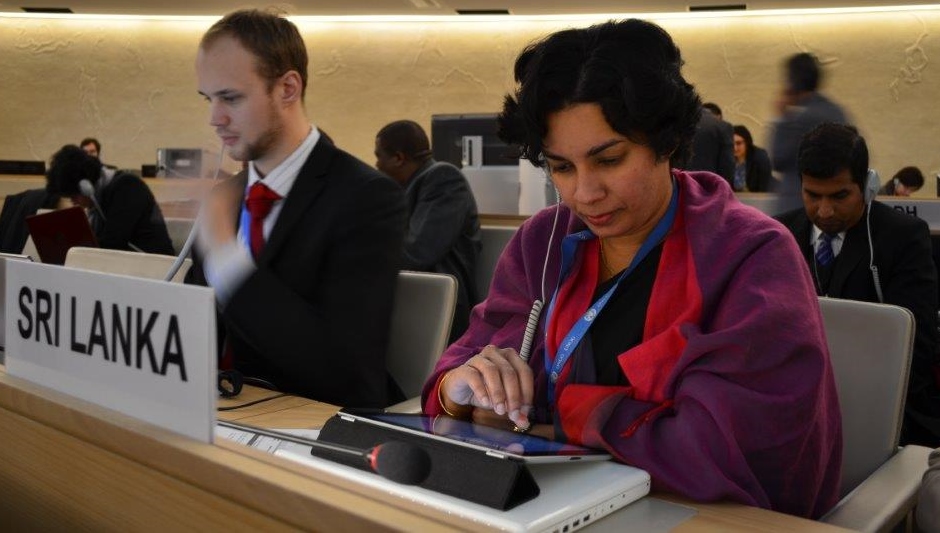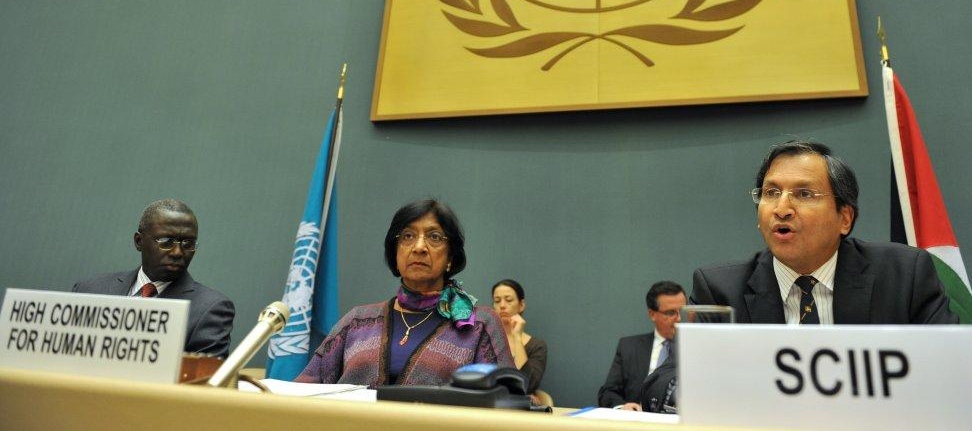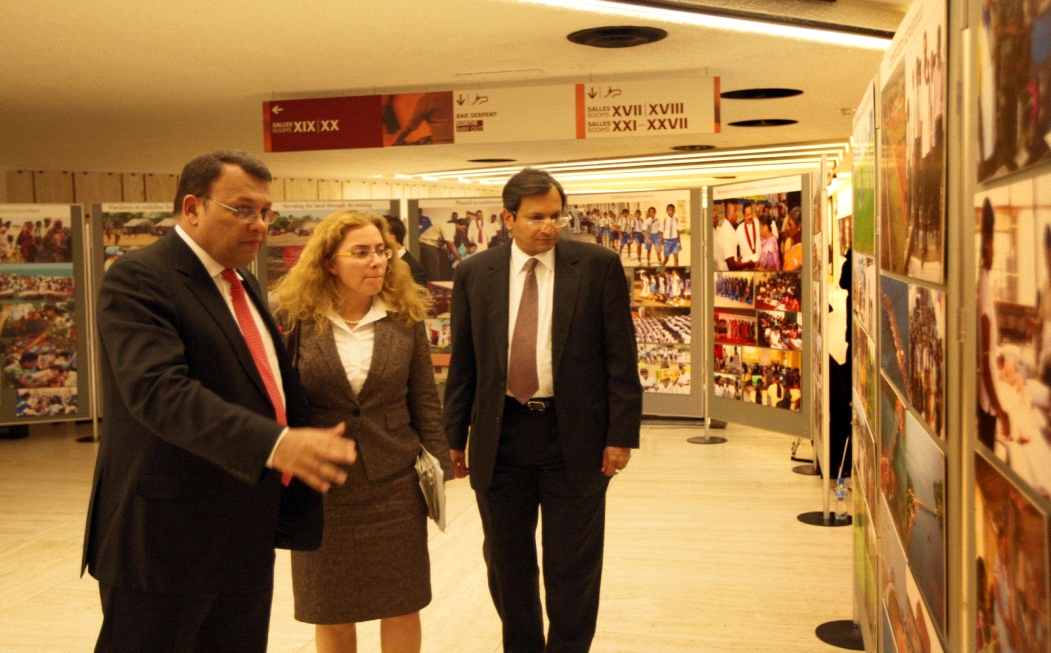Sri Lanka has re-emphasized that the promotion and protection of human rights as enshrined in the Vienna Declaration & Programme of Action (VDPA) should be carried out in conformity with the purposes and principles of the UN Charter, and norms governing international relations.

Intervening during a high level panel on VDPA on the opening day of the Human Rights Council's 22nd Session, Sri Lanka’s Deputy Permanent Representative Manisha Gunasekera said, “Sri Lanka recalls that the promotion and protection of human rights as enshrined in the VDPA should be carried out in a spirit of cooperation, mutual respect and dialogue, and in conformity with the purposes and principles of the UN Charter, and norms governing international relations.” “Sri Lanka therefore believes that the VDPA with its emphasis on cooperation and dialogue, continues to maintain its relevance, now more than ever, and we look forward to working with the Council to further enhance its effective implementation in the forthcoming years”, she added.

Sri lanka has lodged a formal protest against the screening of the latest Channel 4 documentary film “No Fire Zone: The Killing Fields of Sri Lanka” organized by Human Rights Watch, Amnesty International and FIFDH at the Palais de Nations in Geneva on 1st March 2013. In a letter addressed to Ambassador Remigiusz Achilles Henczel, President of the Human Rights Council, Sri Lanka’s Permanent Representative to the UN Ravinatha Aryasinha said “Sri Lanka views this film, as well as the timing of its broadcast as part of a cynical, concerted and orchestrated campaign that is strategically driven, and clearly motivated by collateral political considerations”.

United Nations High Commissioner for Human Rights Navi Pillay chaired a meeting on 29th November 2012 at the Palais des Nationsin Geneva to commemorate the International Day of Solidarity with the Palestinian People.
Sri Lanka's Permanent Representative to the UN in Geneva Ravinatha Aryasinha who was associated with the High Commissioner at the event, read outthe statement of the Chair of the Special Committee to Investigate Israeli Practices Affecting the Human Rights of the Palestinian People and Other Arabs of the Occupied Territories, Sri Lanka's Permanent Representative to the UN in New York Dr. Palitha Kohona.

Minister of Plantation Industries and Special Envoy of the President on Human Rights Mahinda Samarasinghe addressing the concluding session of Sri Lanka's Universal Periodic Review (UPR) Working Group in Geneva on Monday (5 November 2012), appreciated the interest shown by the 98 countries that made interventions during the Review on 1 November 2012. Referring to the outcome document adopted which summarized the comments made by the participating countries (attached below), Minister Samarasinghe said most speakers had commended the progress made by Sri Lanka in the short time since the end of the separatist conflict, while others who registered concerns, had also acknowledged the positive developments in the country.

A photographic exhibition titled “Sri Lanka; Facets of Post Conflict Development” was held in the entrance hall to the Human Rights Council Chamber at the Palais des Nations in Geneva from 1 – 5 November 2012. It portrays the rapid political, economic and socio-cultural developments that have taken place in the Northern and the Eastern Provinces of Sri Lanka since the ending of the terrorist conflict in May 2009.

The Universal Periodic Review (UPR) of Sri Lanka took place this afternoon at the United Nations Headquarters in Geneva , amidst Member States and Observers of the Human Rights Council. The country’s opening Statement was delivered to the Council by Minister Mahinda Samarasinghe, Minister of Plantation Industries, Special Envoy of the President on Human Rights and Leader of the Sri Lanka Delegation.
The Sri Lanka delegation to the 21st Session of the Human Rights Council in Geneva is continuing to engage with the relevant Interactive Dialogues with Special Procedures Mandate Holders and Working Groups.
Participating in the Session on 'Human Rights Situation in Palestine and other occupied Arab territories', Sri Lanka expressed its deep concern about the hardships faced by the Palestinian people. Noting that it had long advocated the recognition of the inalienable rights of the Palestinian people, Sri Lanka said it remains steadfast in its unequivocal support to the people and the Government of Palestine for their just struggle to achieve the right of statehood, coexisting peacefully alongside Israel. Sri Lanka urged the Government of Israel to lift the blockade placed on Gaza, within the framework of Security Council Resolution 1860, which has a devastating impact on the lives of the ordinary people of Palestine, especially the young. Sri Lanka also voiced its belief that the State of Palestine would soon be able to assume its rightful place among the community of states at the United Nations.
